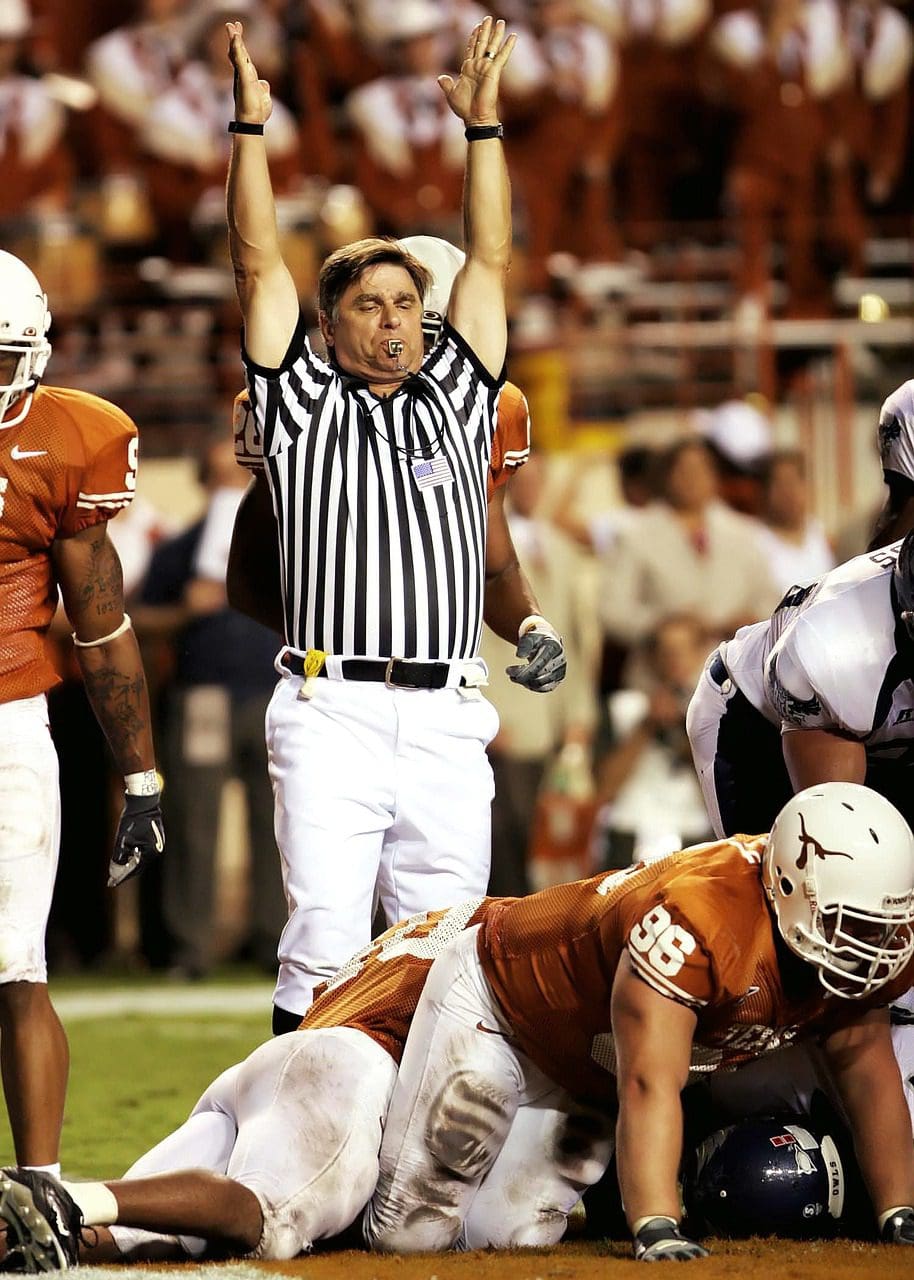Umpire and referee are terms that are both related to sports. They provide their services in ongoing matches and have different purposes in the game.
Though their jobs may seem similar, different sports use one of the two terms to represent the person in authority.
Key Takeaways
- Umpires officiate specific sports, such as baseball, cricket, and tennis, making decisions and enforcing rules within the game.
- Referees oversee various sports like soccer, basketball, and boxing, ensuring fair play and adherence to the rules.
- Both roles contribute to maintaining the integrity and structure of their respective sports, with distinctions primarily based on the sports they govern.
Umpire vs Referee
Umpires are responsible for making calls on balls and strikes, fair and foul balls, and other rule violations in sports. Referees are responsible for enforcing the rules of the game, calling fouls, and making other important decisions. They also ensure the safety of the players and may stop the game if necessary.

In general, an umpire’s or a referee’s job is to determine whether an act that needs arbitration is legal. The umpire is responsible for the participation of players in case any player of a certain team behaves inappropriately or in an illegal manner.
Sports that use umpires are cricket, tennis, baseball, Aussie rules football, etc. Sports with referees are lacrosse, dodgeball, basketball, boxing, ice hockey, etc. American football is a sport with both a referee and an umpire.
Comparison Table
| Parameters of Comparison | Umpire | Referee |
|---|---|---|
| Definition | An umpire is an official who watches the match or game closely to enforce rules and maintain fair gameplay. | An umpire is an official who watches the match or game closely to enforce rules and maintain fair gameplay. |
| Purpose of the game | An umpire settles disputes between the players that the mediators cannot. | A referee ensures that the quality of the game is maintained and no illegal activity is happening in the match. |
| Sports | Cricket, baseball, tennis, Aussie rules football, etc. | American football, lacrosse, dodgeball, basketball, boxing, ice hockey, etc. |
| Number | There is one umpire in the American football game. | There is one referee in the American football game. |
| Other terms used | An umpire is only called an umpire. There can be different umpires, like field umpires, boundary umpires and others. | A referee has other names like linesman, commissaire, timekeeper, judge, touch judge and many others. It is different in different games. |
What is Umpire?
An umpire is a person who is a sports official in various sports who watches the match closely on the field, enforces the rules on the players playing in the match, provides his services and ensures that fair gameplay is maintained throughout the match.
An umpire also settles disputes between the players or teams that the mediators cannot sort out and take decisions accordingly and fairly.
Sports with umpires are tennis, baseball, cricket, Aussie rules football, etc. Any other name does not call an umpire besides an umpire. There are many kinds of umpires in a match, like field umpires, boundary umpires and others.

What is Referee?
A referee is a person who is a match ensures that all the teams follow all the rules and regulations while playing the game, ensures that the quality of the match and game is maintained, takes decisions according to the situation of the match and looks out for any inappropriate behaviour or illegal activity shown by any player or team throughout the whole match.
Sports with referees include dodgeball, lacrosse, basketball, ice hockey, boxing, etc. Referees are differently called in various kinds of sports.
Some terms used in alternative to the referee are timekeeper, linesman, judge, commissaire, touch judge and many others.

Main Differences Between Umpire and Referee
- An umpire is an official who watches the match or game closely on the field, enforces rules and maintains fair gameplay. In contrast, a referee is a sports official who also watches the match up close and makes sure all the players do not behave inappropriately and also adheres to the rules and regulations of the game.
- The sports that have umpires are Cricket, baseball, tennis, Aussie rules football and others. In contrast, the sports with referees are American football, lacrosse, dodgeball, basketball, boxing, ice hockey and many others.
- The umpires are only called umpires and do not have any other names. In contrast, a referee can be called differently in games like linesman, timekeeper, commissaire, judge, touch judge and others.
- The number of umpires can range from two to four in different sports, whereas the number of referees is not many in any sport.
- An umpire’s purpose in the game is to settle disputes between the players and teams that the mediators are not able to sort, while a referee’s purpose in a game is to ensure that the quality of the game is maintained throughout the match and no illegal act or inappropriate behaviour is shown by any player in the match.

- https://dl.acm.org/doi/abs/10.1145/800196.805988
- https://heinonline.org/hol-cgi-bin/get_pdf.cgi?handle=hein.journals/cathu65§ion=28

I disagree with the assertion that referees ensure the ‘quality’ of the game. That’s a subjective judgment and not the primary role of a referee.
I respectfully disagree. The article mentioned that referees ensure fair play and adherence to rules, which is essential for maintaining the quality of a game.
Interesting read. I didn’t realize there were so many sports that use either umpires or referees. The comparison table made it easy to see the differences at a glance.
Very informative article. It provides a clear explanation of the roles umpires and referees play in maintaining fair play in different sports.
I couldn’t agree more. The comparison table was especially helpful in understanding the main differences between the two roles.
The examples provided for sports with umpires and referees were great. It gives context to the roles in different sports.
The article provides a comprehensive overview of the roles of umpires and referees in different sports. Well structured and easy to understand.
Agreed. The clarity of the explanations makes it accessible even for those unfamiliar with these sports terms.
The examples used to illustrate the types of sports with umpires and referees helped clarify the roles in different contexts.
Definitely. It’s easier to understand the differences when you see real-world examples from various sports.
The distinction between umpire and referee is well-explained, but I wish the article delved more into the historical evolution of these roles in different sports.
That’s a valid point. Understanding the historical context would have added depth to the article.
The article presents a detailed comparison of umpires and referees, but I expected more insights into the specific challenges each role faces during a game.
I agree. Exploring the intricacies of the roles in different sports would have made the article more engaging.
A discussion of the unique challenges encountered by umpires and referees would have added depth to the article.
I found the article informative, but I think it could include more examples or anecdotes about real scenarios where umpires or referees played a crucial role in decision-making.
Absolutely. Anecdotes would have brought the roles to life and emphasized their significance in sports.
I agree. Real-world examples could have illustrated the impact of these roles on the games they oversee.
The article’s definitions of umpire and referee are clear and concise, making it easy to grasp the distinctions between the two roles.
I appreciate the straightforward approach. It makes the information accessible to a wide audience.
Absolutely. It’s refreshing to find such clarity in explaining complex sports terminologies.
While the article provides a good understanding of the roles of umpires and referees, I would have liked to see more emphasis on the importance of these roles in maintaining sportsmanship.
That’s a fair point. Acknowledging the role of sports officials in promoting sportsmanship would have enhanced the article.